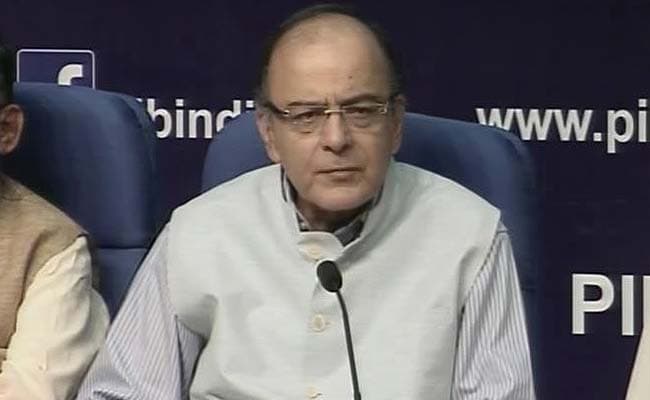
The Rajya Sabha unanimously approved the Goods and Services Tax yesterday
- Rajya Sabha unanimously approved the Goods and Services Tax
- Centre expects 16 states to approve GST within next 30 days
- Government wants to meet a target of April 1 to roll out the tax
Did our AI summary help?
Let us know.
New Delhi:
After Rajya Sabha's unanimous approval for the Goods and Services Tax, the government is stepping on the gas to meet a target of April 1, 2017 to roll out the single national tax that replaces multiple indirect taxes.
The Centre expects 16 states to approve GST within the next 30 days, said Revenue Secretary Hasmukh Adhia on Thursday making a presentation on the implementation roadmap for GST at a press conference called by Finance Minister Arun Jaitley.
"We will be reasonable...which is the date we can see...It's always good to set a stiff target," said Mr Jaitley. He said he hoped to bring the bills connected with the roll-out of the national tax - the Central GST or CGST and the Integrated GST or IGST - during the winter session of parliament.
On the rate of GST the Finance Minister said, "The GST Council will take a view and draw a balance taking into account the revenue requirements and the need to keep the tax rates low." "What we need is an optimal (GST) rate," he added.
The Congress has warned that GST must not exceed 18%.
Mr Jaitley said GST will make doing business in India will be easier and will help a large body of traders and citizens. "There was a public anxiety, almost exasperation, over the delay...that's now over."
"By December 2016, all the back-end and front-end IT systems required for GST are expected to be ready, followed by testing," the revenue secretary also said, adding that about 60,000 officers will be trained pan-India, even as a wide outreach programme will be launched for trade and industry to understand GST.
The 122nd Constitution Amendment Bill passed by the Rajya Sabha will now be sent back to the Lok Sabha, which had passed it last year, for ratification of the amendments made in the upper house.
After a nod from the President, a GST Council will be set up with members from both the states and centres, which will recommend the rate of GST.
The government has agreed with the opposition that the rate of GST will be mentioned in the enabling laws that Parliament will pass next. The states will have to each pass their own law or the State GST.
The Centre expects 16 states to approve GST within the next 30 days, said Revenue Secretary Hasmukh Adhia on Thursday making a presentation on the implementation roadmap for GST at a press conference called by Finance Minister Arun Jaitley.
"We will be reasonable...which is the date we can see...It's always good to set a stiff target," said Mr Jaitley. He said he hoped to bring the bills connected with the roll-out of the national tax - the Central GST or CGST and the Integrated GST or IGST - during the winter session of parliament.
On the rate of GST the Finance Minister said, "The GST Council will take a view and draw a balance taking into account the revenue requirements and the need to keep the tax rates low." "What we need is an optimal (GST) rate," he added.
The Congress has warned that GST must not exceed 18%.
Mr Jaitley said GST will make doing business in India will be easier and will help a large body of traders and citizens. "There was a public anxiety, almost exasperation, over the delay...that's now over."
"By December 2016, all the back-end and front-end IT systems required for GST are expected to be ready, followed by testing," the revenue secretary also said, adding that about 60,000 officers will be trained pan-India, even as a wide outreach programme will be launched for trade and industry to understand GST.
The 122nd Constitution Amendment Bill passed by the Rajya Sabha will now be sent back to the Lok Sabha, which had passed it last year, for ratification of the amendments made in the upper house.
After a nod from the President, a GST Council will be set up with members from both the states and centres, which will recommend the rate of GST.
The government has agreed with the opposition that the rate of GST will be mentioned in the enabling laws that Parliament will pass next. The states will have to each pass their own law or the State GST.
Track Latest News Live on NDTV.com and get news updates from India and around the world

